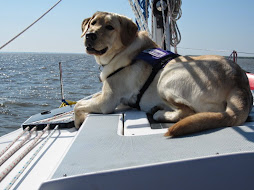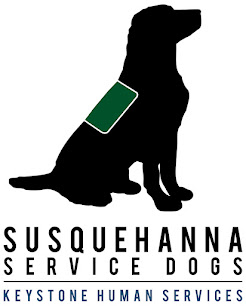This week is International Assistance Dog Week, a week
devoted to celebrating assistance dogs and the many ways they change people’s
lives. We started celebrating a little early this year because last Friday,
three people passed the public access test with their new service dogs. SSD
Ottawa and SSD Slate are now working service dogs, and SSD Boomerang is a
facility dog in a school. And in June, four more dogs were placed—SSD Beaker, SSD Brooklyn, SSD Falstaff, SSD Hamlet, and SSD Seifert.
These dogs and their partners spent two weeks in Team
Training learning how to work together. They started by practicing the most
basic skills, such as attention, sit, down, and stay, and moved on to the
specialized skills and behaviors each dog learned specifically for their
partner.
Congratulations to all of our new service dog teams! We’re
looking forward to hearing stories about your new service dogs.
We mentioned that our new teams passed their public access
test, which means we have certified that their service dog meets certain
standards. The dog will be able to go anywhere in public with their partner—restaurants,
movie theaters, amusement parks, post offices, grocery stores, etc. Even though
the dogs are allowed by law to accompany their partners in public, not everyone
knows and understands the law. Service dog teams are often denied access
because people don’t understand that service dogs are not pets.
The Americans with Disabilities Act (ADA) lays out the law
for service dogs. These ADA requirements are available online.
Here’s a quick overview of the ADA as it pertains to service
dogs:
- Service dogs perform tasks or do work for people with disabilities. Service dogs are not pets.
- Any business, nonprofit, or state and local government that serves the public must allow service dogs to accompany people with disabilities everywhere the public is normally allowed to go. This means, for example, that a person with a service dog cannot be seated in the back of a restaurant far away from the other patrons.
- Service dogs must be under the control of their handler.
- Other people can only ask two questions about a service dog: (1) is the dog a service dog required because of a disability, and (2) what work or task has the dog been trained to perform.













No comments:
Post a Comment